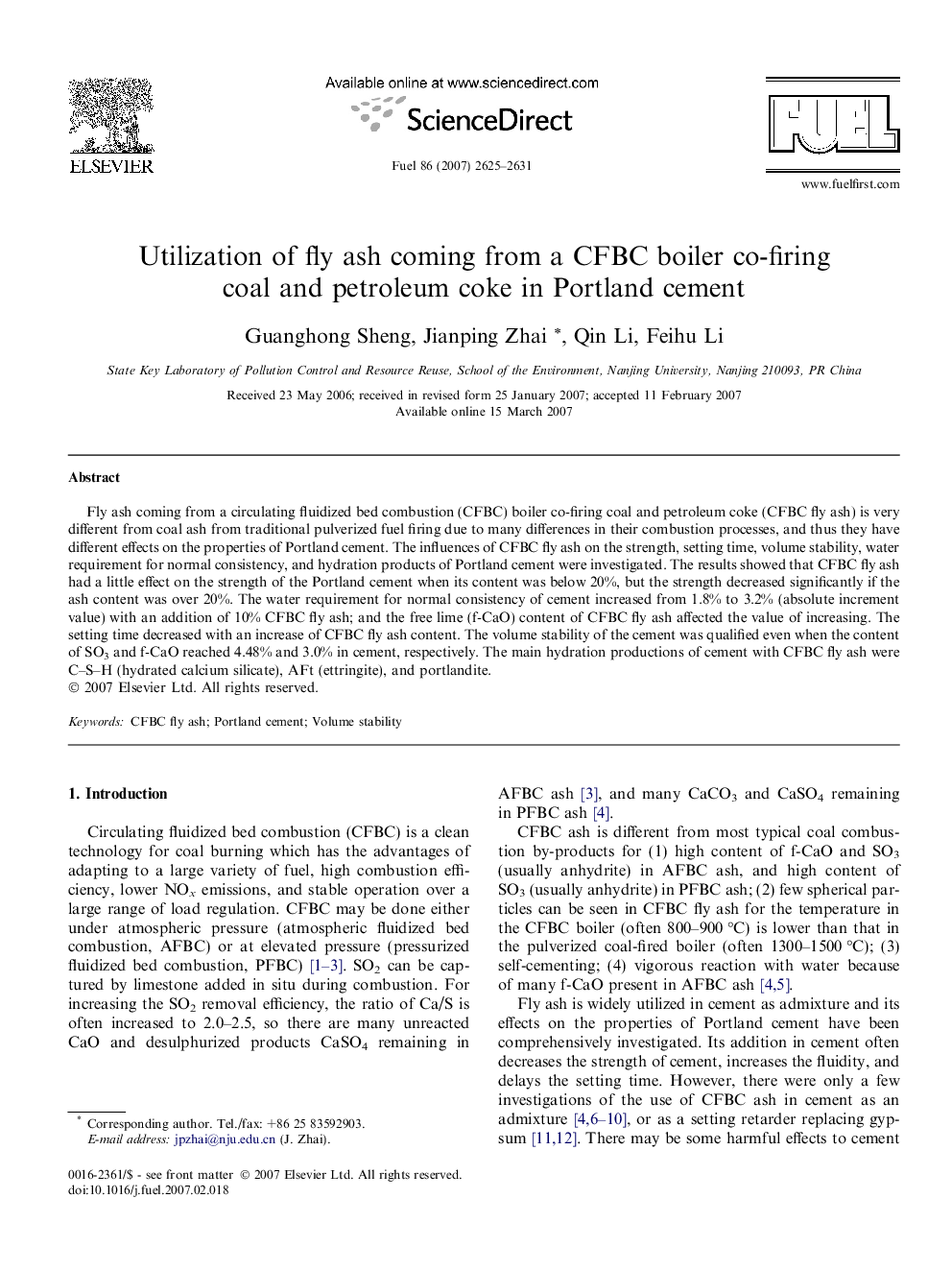| Article ID | Journal | Published Year | Pages | File Type |
|---|---|---|---|---|
| 208119 | Fuel | 2007 | 7 Pages |
Fly ash coming from a circulating fluidized bed combustion (CFBC) boiler co-firing coal and petroleum coke (CFBC fly ash) is very different from coal ash from traditional pulverized fuel firing due to many differences in their combustion processes, and thus they have different effects on the properties of Portland cement. The influences of CFBC fly ash on the strength, setting time, volume stability, water requirement for normal consistency, and hydration products of Portland cement were investigated. The results showed that CFBC fly ash had a little effect on the strength of the Portland cement when its content was below 20%, but the strength decreased significantly if the ash content was over 20%. The water requirement for normal consistency of cement increased from 1.8% to 3.2% (absolute increment value) with an addition of 10% CFBC fly ash; and the free lime (f-CaO) content of CFBC fly ash affected the value of increasing. The setting time decreased with an increase of CFBC fly ash content. The volume stability of the cement was qualified even when the content of SO3 and f-CaO reached 4.48% and 3.0% in cement, respectively. The main hydration productions of cement with CFBC fly ash were C–S–H (hydrated calcium silicate), AFt (ettringite), and portlandite.
